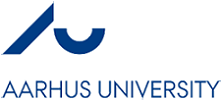Visual Anthropology

Introduction
Equipped for globalisation
In the degree programme, you work with cultures and societies around the world. You work with a comparative perspective and, through the study of social and cultural conditions, you seek to acquire an understanding of human conditions and the way they change. You gain insight into how people live and interact with each other and into the society's institutions, rules, traditions and technology. Anthropology deals with humans as social and cultural beings and with the way we interact with each other and society. These are important skills in an increasingly globalised world, and with a Master’s degree in Anthropology you are well equipped for the Danish as well as the international job market.
Anthropology in theory and practice
In the Master’s degree programme in anthropology at Aarhus University, you gain considerable practical experience. Independent anthropological fieldwork or fieldwork practicum in a Danish or foreign company or organisation provides you with an opportunity to use anthropological methods and theories in practice. You also strengthen your individual competence profile and specialise in specific topics through your choice of track and selection of topic for fieldwork and thesis. Many students draw on material and data from their fieldwork or practical training in the thesis.
Na studia magisterskie mogą kandydować wszyscy, którzy ukończyli studia licencjackie lub inżynierskie (studia I stopnia), studia magisterskie lub studiują na ostatnim roku studiów I-stopnia. Studia, które planujesz powinny mieć zbliżony profil do tych obecnych lub ukończonych, ponieważ w procesie rekrutacji kluczowa jest ich zgodność programowa.
Wykaz punktów ECTS – osoby, które są jeszcze w trakcie studiów, muszą załączyć wypis punktów ECTS, w którym będzie wykazane, jakie przedmioty były realizowane na studiach oraz ile punktów za nie otrzymano.
Dyplom ukończenia studiów licencjackich lub inżynierskich – jeśli jesteś absolwentem wyższej uczelni, nie potrzebujesz wypisu, wystarczy załączyć dyplom ukończenia studiów wraz z suplementem (w języku angielskim lub oryginał z tłumaczeniem)
Course description - należy przygotować dokument, zbierający cały sylabus ze studiów licencjackich. Takie sylabusy najczęściej są do pobrania na stronie uniwersytetu. Należy je przetłumaczyć na język angielski (można samodzielnie) i złączyć w jeden dokument. Warto też zapytać w dziekanacie uczelni, czy nie dysponują wersją angielską.
Oficjalna skala oceniania Twojej uczelni - możesz dostać taki dokument w dziekanacie Twojej uczelni lub skonstruować samodzielnie. W obu przypadkach dokument powinien zawierać pieczątkę dziekanatu.
Spełnienie wymagań w zakresie języka angielskiego można udokumentować w jeden z następujących sposobów:
IELTS – 6.5
TOEFL – 83 (Aarhus University TOEFL kod - 8935)
Uwaga: wymagania językowe mogą ulec zmianie. Przed wysłaniem aplikacji upewnij się jakie są wymagania językowe na konkretny kierunek bezpośrednio na stronie uczelni.
W przypadku zdawania certyfikatu IELTs upewnij się, czy uczelnia oprócz wymagań oceny końcowej nie ma również wymagań odnośnie ocen cząstkowych.
You can be admitted to the master's programme if the university assesses that your education has a level, scope, and content that corresponds to the academic requirements specified below.
| Subject area | Number of ECTS |
Central anthropological concepts and analysis | 20 |
| Anthropological theme or region | 10 |
Qualitative method | 10 |
| Total | 40 |
Competence profile
A Master’s degree in anthropology and ethnography provides you with the following competences:
- Cultural understanding: You acquire a thorough understanding of cultural differences and similarities and, in particular, ways to analyse complex cultural issues. This applies to foreign cultures as well as cultural differences in Denmark between companies, gender, generations, ethnic groups, etc.
- Communication: You become skilled at communicating both verbally and in writing, especially with a view to publicising knowledge about work and project results.
- Specialisation: You come to specialise in specific topics and regions, and acquire special skills in areas such as the environment, integration, China, etc.
- Analysis: Your knowledge of anthropological tools of analysis enables you to plan and implement large projects that involve complex analysis and evaluation procedures.
Job profile
Anthropologists have many different career paths, including teaching, project management, development projects, and consultancy and analysis work within the following areas:
- The social sector: Many anthropologists are employed in private consultancy firms, municipalities or educational institutions within the social sector. Examples of these include project managers, job consultants in municipal job centres, labour market and integration consultants, researchers and teachers in education programmes for social workers.
- Organisation and staff: Anthropologists who specialise in organisational and industrial anthropology can find work in human resources and organisational development departments in both private and public sector companies via recruitment agencies or as external consultants.
- Development and aid to developing countries: Many anthropologists are involved in the planning, implementation and evaluation of development projects, where they can be based in Denmark or posted abroad working for NGOs, the Danish International Development Agency (Danida), consultancy firms, etc.
- Analysis and evaluation: As an anthropologist, you become skilled at undertaking systematic analyses. Many graduates therefore find jobs in consultancy firms or public institutions, where they carry out evaluation and analysis work in different areas, such as psychiatry or the treatment of drug abusers.
- Health: You have the opportunity to specialise in health anthropology and apply for jobs such as a project manager, intermediary, development consultant or project evaluator in the health sector.
You can choose to work in research by studying for a PhD, either at the university or in collaboration with a private company. Click on for more information about PhD degree programmes at the Faculty of Arts.
You can also read more about a range of career guidance services including special events and workshops at AU Career.
